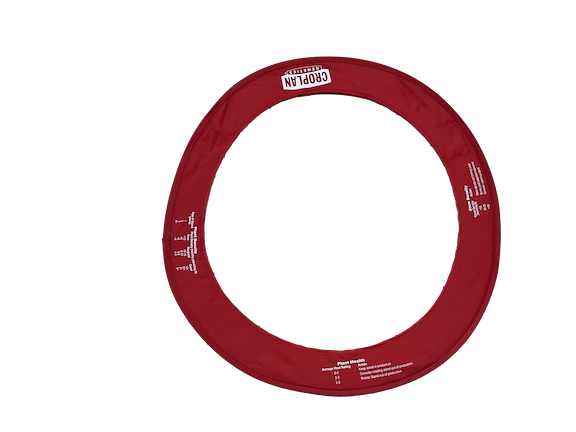Alfalfa Winterkill in the Winter that Wasn’t?
Apr 10, 2024

“It has been an interesting winter,” said Craig Loen, Federated agronomist at the Osceola location. “Very little snow early to mid-winter, considerably warmer than normal temperatures … one cold snap that lasted about 10 days, and it was not super cold.” Alfalfa winterkill may not be an issue.
Plus, frost was minimal for the majority of the winter. Thus, Loen said, “the low areas of the fields didn’t have ice sheets over the crowns, due to lack of moisture, so they shouldn’t have much winter kill due to the snow melting and refreezing this past winter.
Several factors can affect winter kill of stands in alfalfa:
The heavy snow March 22-27 added good moisture to fields. “My climate app showed 2.8 inches water equivalent in that snow event,” Loen said.
Your Federated Agronomist recommends a helpful tool – the Croplan® Alfalfa Ring (pictured) – that can help measure alfalfa plant health and roots, stem density counts, and plant density in the field (healthy plants/sq. ft.).
Plus, frost was minimal for the majority of the winter. Thus, Loen said, “the low areas of the fields didn’t have ice sheets over the crowns, due to lack of moisture, so they shouldn’t have much winter kill due to the snow melting and refreezing this past winter.
Several factors can affect winter kill of stands in alfalfa:
- Stand age; newer stands will be more hardy than older stands.
- Alfalfa variety; some have better winter hardiness ratings and disease resistance.
- Soil pH; a range of 6.6 to 6.9 is optimal.
- Soil fertility; high potassium nutrient levels are helpful.
- Loen noted: “Fall fertilization is always a good practice, building up crown nutrient levels to help over winter.”
- Snow cover; snow insulates the soil and crowns; more snow means fewer temperature fluctuations.
The heavy snow March 22-27 added good moisture to fields. “My climate app showed 2.8 inches water equivalent in that snow event,” Loen said.
Your Federated Agronomist recommends a helpful tool – the Croplan® Alfalfa Ring (pictured) – that can help measure alfalfa plant health and roots, stem density counts, and plant density in the field (healthy plants/sq. ft.).